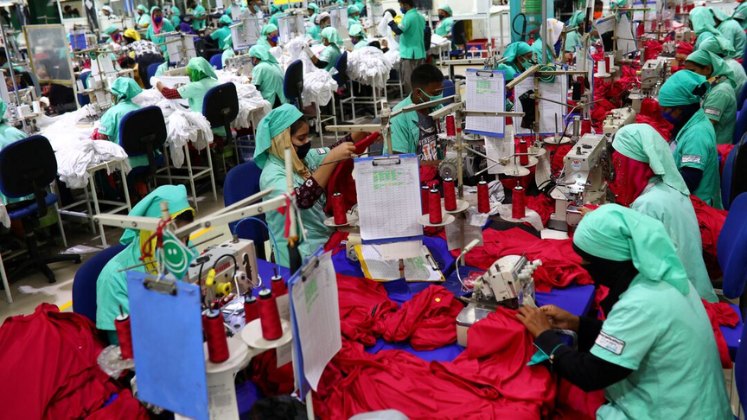
Pressure is mounting on Bangladesh’s garment sector. Leaders from multiple garment export bodies have indicated that certain international orders are being diverted away from Bangladesh owing to political unrest and disruptions in gas and electricity supply.
They claim that many exporters are obliged to transmit goods by costly air shipment, which results in significant financial losses, because they are unable to reach production targets and ship goods on time. Small and medium-sized clothing factories, which are having difficulty surviving, are particularly impacted by this.
The Bangladesh Garment Buying House Association (BGBA) presented this information at a seminar titled Current Challenges in the Garment Sector and the Way Forward, which was held at the capital.
Bangladesh Knitwear Manufacturers and Exporters Association (BKMEA) Vice President Mohammad Rashed said, “We are currently going through a difficult time. The country’s uncertain situation and energy crisis will deepen if they are not resolved quickly.”
On the other hand, BGBA Secretary General Mohammad Zakir Hossain said, “Due to severe gas shortage and three to four hours of load shedding every day, many factories are not able to complete production on time. As a result, it is becoming impossible to ship products within the stipulated time.”
Amir Khasru Mahmud Chowdhury, a former Minister of Commerce, stated that “A holistic approach including relaxation of regulations is necessary to bring relief to the country’s economy and increase business facilities. Ensuring suitable capacity and a comfortable environment for the private sector is crucial. Giving speeches or enacting piecemeal regulations won’t help if traders aren’t relieved or comforted.”
Showkat Aziz Russell, President of the Bangladesh Textile Mills Association (BTMA) said, “It takes 120 days to get permission from the government for a meeting, but that meeting has not been held till date. The combined investment of various organisations including BGMEA, BTMA, BKMEA, BGBA, BGAPMEA is about US $ 75 billion. They export US $ 40 billion worth of goods annually. In future, exports will exceed US $ 50 billion and touch US $ 100 billion.”
Faisal Samad, Director of BGMEA said at the meeting that traders of the garment industry constantly face various problems including power shortage, labour issues and lack of skills. There are buyers who bring trade to Bangladesh but also create multiple problems. It is important to identify such buyers because in many cases, foreign exchange repatriation is delayed for them.
“No appropriate roadmap has been prepared to achieve the big target of US $ 44.4 billion income that the government has set,” stated BGBA President Muhammad Pavel. The types of work orders that will be issued in the upcoming six months or a year are already being planned by the purchasing houses. However, no policy-making conversations are taking place with them. In the present circumstances, policy support is also required.
Additionally, according to BGBA, over 200 readymade clothing factories—many of which were small and medium-sized businesses—closed during the past one-and-a-half years. According to businesspeople, this tendency could significantly affect the nation’s employment and export revenue if it persists.






